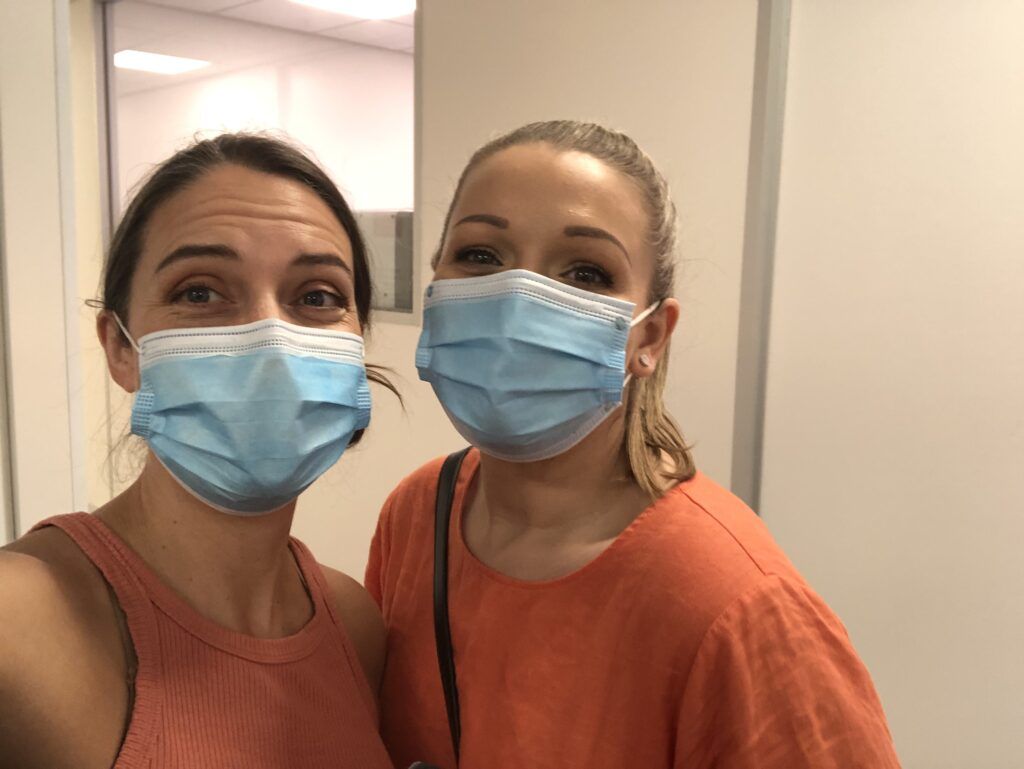
As we mark International Women’s Day, it is important to acknowledge the triumphs we have seen in women’s healthcare in recent years.
But for all these important steps, there is more to be done. Last year, the Australian Government highlighted that there are systemic issues in healthcare delivery and medical research meaning women often suffer poorer health outcomes, including delayed diagnosis, overprescribing, and a failure to properly investigate symptoms.
Senior Account Manager, Annette Stenhouse has served for a decade in healthcare communications. As part of International Women’s Day 2024, she sat down to discuss how she finds working in this important area.
In their own words – the stories that stay with me
I have now entered my tenth year working at London Agency and when it comes to women’s health, there are so many projects and people I could choose to talk about for International Women’s Day. While some of my favourite moments have been working with excellent women who are doctors and scientists, I have chosen to focus on the patients, and all that they have taught me about why my job is important, and how to do it better.
Media can improve awareness, but real-life stories are what changes behaviour
Over the last decade, I have been lucky to work on many cervical cancer projects. One of the most recent was an event at the Parliament of Victoria offering self-collected cervical screening tests to politicians. This was the first event of its kind in Australia and was very well received and supported by our elected officials. Being able to undertake this event at a parliament that had just reached a 50:50 split between male and female members made it extra special.
The attendance and strong support of the Premier, Minister for Health, Shadow Minister for Health, Parliamentary Secretary for Women’s Health, Speaker, as well as many other state parliamentarians was a highlight, but the biggest highlight for me was witnessing the courage of the woman who shared her personal story of cervical cancer, and the devastating personal impact of the disease we are trying so hard to prevent.
After an early morning appearance on ABC Breakfast, Sherry McMillan stood bravely in front of a room packed with politicians she had never met before, and told them the confronting reality of a cervical screening test delayed only by a quirk of fate. The shock of diagnosis, the pain of surgeries, the grief and long road to healing that followed.
I knew Sherry’s story already having produced a video with her months before, and I knew the determination it took for her to tell her story so publicly.
She found that determination because she knew that hearing her story could prompt someone else to get a cervical screening test, a move which could save their life.
This is just one of the stories I have had the privilege to help share. I am particularly proud of and incredibly grateful to one journalist, who after receiving a cancer diagnosis, agreed to become the story to raise awareness. ABC journalist and breast cancer survivor, Mary Lloyd.
After Mary shared some information about her breast cancer diagnosis and treatment on social media, we contacted her with an offer to meet the person behind the scenes who had diagnosed her ‘sneaky’ cancer.
She jumped at the chance to come into a pathology laboratory to meet her pathologist for the first time and to look under the microscope at the little piece of her, which had led to a diagnosis of lobular breast cancer. This was a second cancer not visible on imaging and not part of the initial lump she had felt.
Although awareness of breast cancer in general is relatively strong, there are some vital messages in the story Mary put together which aired recently on ABC 7.30. The importance of self-checking, knowing your own body, and advocating strongly for your health when something isn’t right, cannot be overstated. These messages really hit home when told by women who have been there, and are telling their stories to help save others.
I know that personal stories work to get the message across, because many people I have spoken with who went on to share their own health stories, have told me so. They got that test, check-up or spoke to their doctor about some new treatment after a media or social media story caught their eye or ear.
I don’t just know this anecdotally, I know this from my own personal experience. I too have had at least one check-up as a result of my discussions with patient advocates; I am totally fine but glad I got checked!
Laughing or crying, it’s all good
Another handy tool that has been useful to communicate women’s health issues to the public is humour.
During the onset of COVID-19, we saw a drop in routine health checks and cervical screening in particular. Recruiting comedians such as Alice Fraser, Ali Brydon and Julia Zemiro who kindly agreed to issue light-hearted reminders to their followers to get up to date with cervical screening was not only fun, but reached a different audience in a more palatable way than some traditional health messages.
The shame that has too often surrounded talking about women’s bodies can be undone with a well-placed joke, an irreverent remark, or a light-hearted approach, especially from someone familiar.
| Comedian and broadcaster Sarah Maree Cameron donated her time for a video project to raise awareness when self-collection for cervical screening tests was introduced. She, alongside the health professionals she spoke with, did such a great job that our video ended up on the Department of Health’s website, and she continues to be an excellent advocate for women’s health.
Her show at the Melbourne Comedy Festival, One Womb Please!, goes into detail on her own cervical cancer story as well as the reproductive odyssey that will be familiar to many women. Performing the show in 2023, she slipped in a cheeky public service announcement, reminding women that self-collection is now an option and to get up to date with their tests. She describes her show this year as “same themes, just with better jokes”. I hope I’ll see you there! |
 Sarah Maree Cameron and Annette Stenhouse at a pathology lab in Melbourne |
Women’s health is an everybody issue
Although many projects I’ve worked on have fallen squarely into the ‘women’s health basket’, some of the most interesting health challenges are those affecting all genders but where women are over-represented, such as chronic pain.
Obviously, women’s pain is an issue we can all be invested in; even if you aren’t a woman, there are people you care about who are. However, we need to care about this for reasons beyond the ‘someone’s mother, someone’s daughter’ argument.
Survey results released by the Victorian government in January 2024 found that 4 in 10 Victorian women experienced chronic pain, and that 1 in 3 women also reported interactions with healthcare professionals where they felt dismissed and unheard.
A 2022 report from the Australian Bureau of Statistics (ABS) noted that nationally 66 per cent of women aged 18 years and over experienced interference with work due to pain, compared to 58 per cent of men. Painaustralia states that 40 per cent of early retirements are due to chronic pain.
Chronic pain is complex, and for some people it takes more than a decade to get the care which will effectively address it. One of these people is Kristy Jarvis. She was injured in a car accident and left with chronic pain that began with a severed nerve in her leg. For Kristy it took 16 years to get the right treatment which now allows her to work, spend time with her daughter and granddaughter, and function day-to-day. Kristy has a cheerful outlook, she is keen to share her story to help others, and it was a delight to meet her and see the enjoyment she now has in everyday life.
It is clear that their pain, and the failure to address it, has a significant negative impact on the workforce, the economy, the families, and communities of these women, not to mention on the women themselves. That’s why it’s an everybody issue.
Sharing actually is caring
I am in awe of these women, who have shared their deeply personal stories with me, someone who is otherwise a stranger. Often, we are talking in intimate detail about the lowest point of their life. That they then go on to share their stories with the wider world is astounding to me, and I am so grateful for the privilege to work with them, but also because I know that their bravery in speaking up has helped others, and likely saved lives. On International Women’s Day, that’s something we can all be proud of.